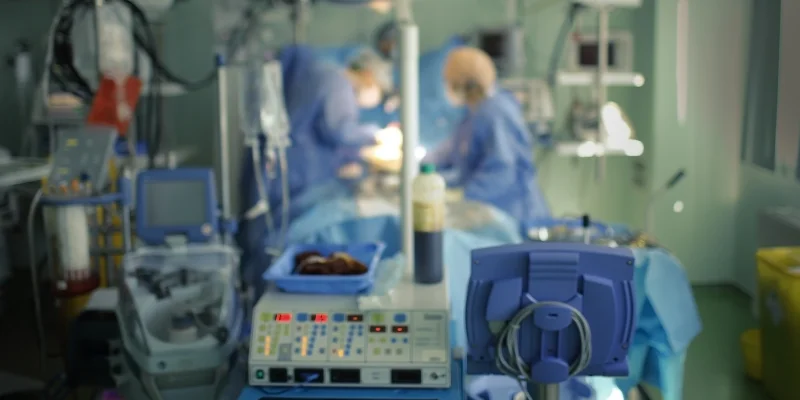When You Can’t Stop Vomiting, It’s A Sign to Seek Medical Attention

Vomiting is a pretty self-explanatory condition. However, if you or anyone you know could not stop vomiting, especially if it is accompanied by other symptoms; it is the body’s way of sending a warning message. This is not a sign to wait it out or shrug it off; it is a possible sign of a serious medical condition that requires immediate medical attention.
Why can’t I stop vomiting?
Vomiting is a symptom that usually does not continue for long; however, it can also be a symptom of an ongoing (chronic) health issue. If vomiting persists for a few days straight, as mentioned above, you should see a doctor and explain your condition to them. Below are reasons of why non-stop vomiting may occur:
Medicines
Certain types of medicine can cause nausea and vomiting as a side effect:
Non-steroidal anti-inflammatory medicines (NSAIDs)
Nicotine patches
Anti-arrhythmic (medicines that suppress abnormal heart rhythms)
Metformin (a diabetes medicine)
Certain antibiotics
Anticonvulsants
If you think a specific type of medicine is causing you to vomit, speak to your doctor for clarification. They provide valuable insight and may be able to substitute it with a different medication. Remember to always consult a healthcare professional before taking any type of medication. Substance abuse causes vomiting as well.
Cancer treatment
Chemotherapy medications: Nausea and vomiting can be side effects of chemotherapy. These symptoms normally start a few hours after treatment. Inform your healthcare provider if you feel ill. They may be able to give you antiemetic medicine to stop the vomiting.
Radiation treatment: Nausea or vomiting can be side effects of radiotherapy. If you experience nausea or vomiting after treatments, inform your radiation oncologist or nurse. They may be able to provide you with antiemetic medicines to stop your symptoms.
High dosage vitamins intake
Did you know that taking high doses of certain vitamins can lead to vomiting? Remember to inform your doctor or pharmacist about whatever you are taking; this includes herbs, vitamins, and other complementary medicines.
Pregnancy
Morning sickness is a common symptom during early pregnancy. Nausea and vomiting are involved at any time of the day, but they usually occur in the morning. Usually, your symptoms will improve after the first 3 months of pregnancy. Hyperemesis gravidarum is a more serious level of vomiting during pregnancy.
Migraine
A migraine is commonly accompanied by nausea and vomiting. Vomiting may occur in the headache phase, after the aura, if you have one.
Food allergies
Ongoing digestive symptoms can occur in food allergies, such as:
Vomiting
Diarrhoea
Constipation
Flatulence (wind)
Bloating
If your symptoms occur not long after you eat, consult your doctor or a dietitian for advice.

Medical conditions
Upper digestive tract disorders: If vomiting is a common occurrence for you after meals, this may be caused by gastro-oesophageal reflux disease (GERD).
Gastroparesis: Gastroparesis occurs when nerve damage delays stomach emptying. It can cause nausea and vomiting after meals.
Kidney stones: Symptoms of kidney stones are nausea and vomiting, together with gripping pain in your back.
Functional nausea and vomiting: Chronic nausea and vomiting are called functional nausea and vomiting when the medical cause is unclear. A rare syndrome called cyclic vomiting syndrome is a type of functional nausea and vomiting.
When should I seek urgent medical attention for vomiting?
While most cases of vomiting resolve on their own, some require urgent medical attention. Seek immediate care if you experience any of the following:
Vomiting continuously for two days or more, or experiencing intermittent vomiting for over a month.
Being unable to keep down even small sips of clear fluids.
Showing signs of dehydration, such as dark yellow urine, difficulty urinating, or a dry mouth and eyes.
If you arrive at Prince Court Medical Centre with vomiting, please inform the front desk so you can be directed to a triage room rather than waiting in the general area. Pregnant patients experiencing persistent vomiting should also contact their obstetrician promptly.
If your vomit contains blood, or if low blood pressure makes it difficult for you to stand, proceed straight to our Accident & Emergency (A&E) Department for immediate treatment.
Vomiting puts significant strain on your body. Waiting too long to seek care can make treatment more complicated and recovery more difficult. The same applies to other health concerns: if you feel unwell, see a doctor without hesitation.
At Prince Court Medical Centre in Kuala Lumpur, our experienced team of
gastroenterologists and advanced facilities are here to provide comprehensive digestive care. Your health is in your hands, but you don’t have to face it alone — let us support you in achieving better digestive health and quality of life.



















